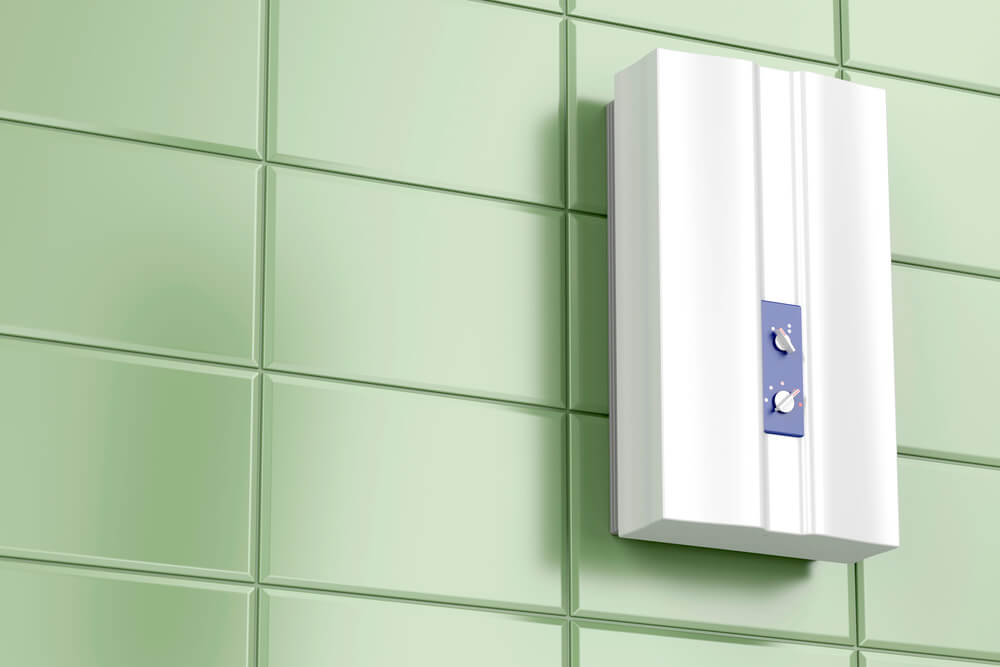In recent years, the way we think about home water heating has undergone a significant transformation. Traditional tank water heaters, which have long been the standard in many households, are now facing competition from a more efficient and innovative solution: tankless water heaters. These modern appliances promise to revolutionize the way we access hot water, offering a range of benefits that appeal to both environmentally conscious consumers and those looking to save on energy costs.
As we delve into the world of tankless water heaters, we will explore their functionality, advantages, and potential drawbacks, providing you with a comprehensive understanding of why they are being hailed as the future of home water heating. Whether you’re considering an upgrade or simply curious about this emerging technology, this guide will equip you with the knowledge needed to make informed decisions about your home’s hot water needs.
1. Understanding Tankless Water Heaters: How They Work
Tankless water heaters, also known as on-demand water heaters, are a modern alternative to traditional tank water heaters. Unlike conventional water heaters that store and heat a large volume of water, tankless water heaters heat water directly as it flows through the unit. When a hot water tap is turned-on, cold-water travels through a pipe into the unit, where a gas burner or electric element heats the water instantaneously.
This process allows for a continuous supply of hot water without the need for a storage tank, making hot water heaters an efficient and space-saving option for many households. One of the key components of a this water heater is the heat exchanger, which is responsible for heating the water as it passes through the unit. There are two main types of tankless water heaters: gas-fired and electric.
Gas-fired tankless water heaters use a burner to heat the water, while electric tankless water heaters use heating elements. Both types are designed to provide hot water on demand, eliminating the standby energy losses associated with traditional tank water heaters.
2. Benefits of Installing a Tankless Water Heater
With a tankless water heater, you can enjoy hot water for as long as you need it, without the worry of running out during a shower or while doing dishes.
Tankless water heaters are more energy-efficient than traditional tank water heaters, as they only heat water when it is needed. This can result in lower energy bills and reduced environmental impact.
Unlike bulky tank water heaters, tankless units can be mounted on a wall or installed in tight spaces, freeing up valuable floor space in your home. Additionally, tankless water heaters have a longer lifespan than traditional units, with many models lasting up to 20 years with proper maintenance.

3. Energy Efficiency and Cost Savings
Tankless water heaters are renowned for their energy efficiency and potential cost savings. Unlike traditional tank water heaters, which continuously heat and reheat water to maintain a set temperature, tankless units only heat water when it is needed. This on-demand heating process reduces standby energy losses and can result in significant energy savings over time.
In fact, according to the U.S. Department of Energy, homes that use 41 gallons or less of hot water daily can benefit from 24%-34% more energy efficiency with a tankless water heater compared to a conventional storage tank water heater. In addition to energy efficiency, tankless water heaters can also lead to cost savings for homeowners.
While the initial purchase and installation costs of a tankless unit may be higher than those of a traditional water heater, the long-term savings on energy bills and the extended lifespan of the unit can make it a cost-effective investment. Furthermore, some utility companies offer rebates or incentives for installing energy-efficient appliances like tankless water heaters, providing additional financial benefits for homeowners.
4. Choosing the Right Tankless Water Heater for Your Home
When selecting a tankless water heater for your home, there are several factors to consider to ensure you choose the right unit for your needs. First, determine the appropriate size and capacity based on your household’s hot water usage. Consider the number of fixtures and appliances that will be using hot water simultaneously to determine the flow rate required for your tankless water heater.
Additionally, consider whether you want a gas-fired or electric unit based on your home’s existing infrastructure and your preferences regarding energy sources. It’s also important to research different brands and models to find a reliable and high-performing tankless water heater. Look for units with high energy efficiency ratings and positive customer reviews to ensure you’re investing in a quality product.
Consider additional features such as digital controls, safety features, and warranty coverage when comparing different models. Finally, consult with a professional plumber or HVAC specialist to assess your home’s specific requirements and receive expert guidance on selecting the best tankless water heater for your household.
5. Installation and Maintenance Considerations for Tankless Water Heaters
Proper installation and maintenance are crucial for ensuring the optimal performance and longevity of a tankless water heater. When installing a tankless unit, it’s essential to consider factors such as location, venting requirements, and access to gas or electrical connections. Professional installation by a licensed plumber or HVAC technician is recommended to ensure compliance with local building codes and manufacturer specifications.
Regular maintenance is also important for preserving the efficiency and reliability of a tankless water heater. Flushing the unit periodically to remove mineral deposits and debris is essential for preventing clogs and maintaining optimal heat transfer within the heat exchanger. Additionally, inspecting components such as the burner or heating elements, sensors, and venting system can help identify any potential issues early on and prevent costly repairs down the line.
In conclusion, tankless water heaters offer numerous benefits, including energy efficiency, cost savings, endless hot water supply, and space-saving design. By understanding how these units work, considering key factors when choosing a unit, and prioritizing proper installation and maintenance, homeowners can enjoy the advantages of this innovative technology for their home water heating needs.
Don’t Wait—Start Saving Energy and Money with a Tankless Water Heater
In conclusion, tankless water heaters represent a significant advancement in home water heating technology. If you’re considering making the switch to a tankless water heater or simply want to learn more about how this technology can enhance your home’s efficiency and convenience, Gold Star Plumbing is here to help. Serving Nashville, La Vergne, Brentwood, Smyrna, Murfreesboro, and Nolensville, TN, our team is dedicated to providing exceptional installation services tailored to your specific needs.
With our expertise and commitment to customer satisfaction, you can trust that your tankless water heater installation will be handled with the utmost professionalism and care. Don’t hesitate to reach out for a free estimate or to discuss your options further. Contact us today at 615-290-9860 and take the first step toward enjoying the benefits of a tankless water heater in your home. Your comfort and satisfaction are our top priorities!
